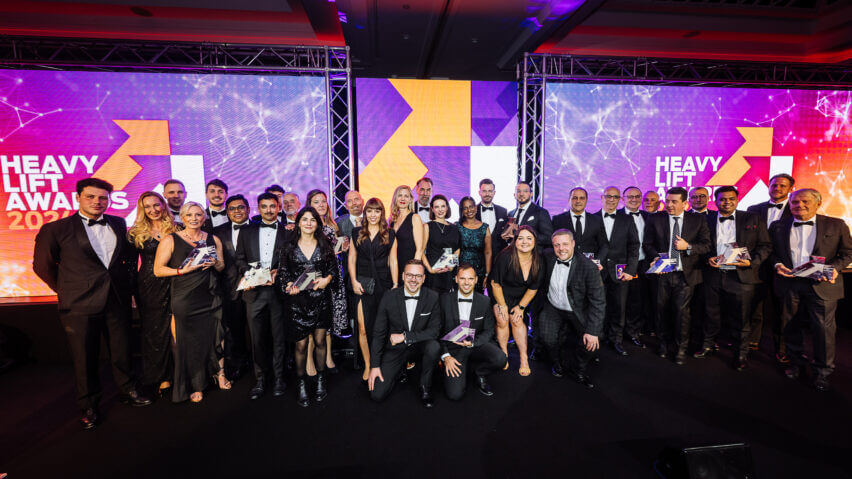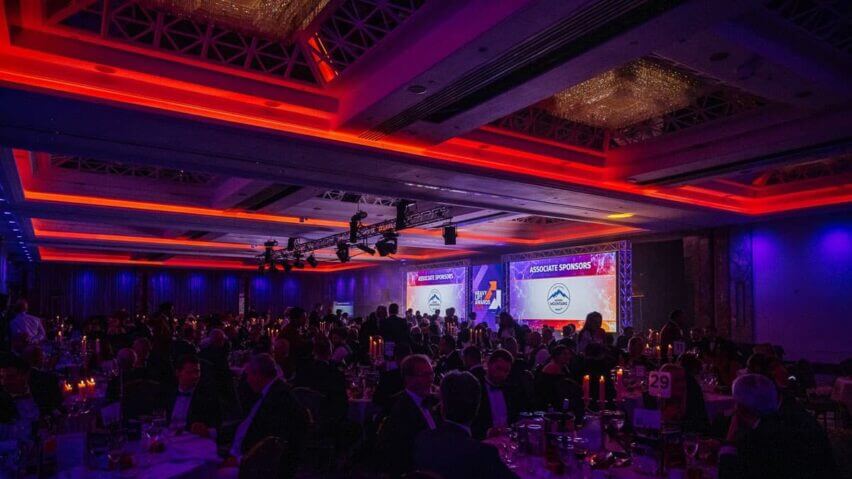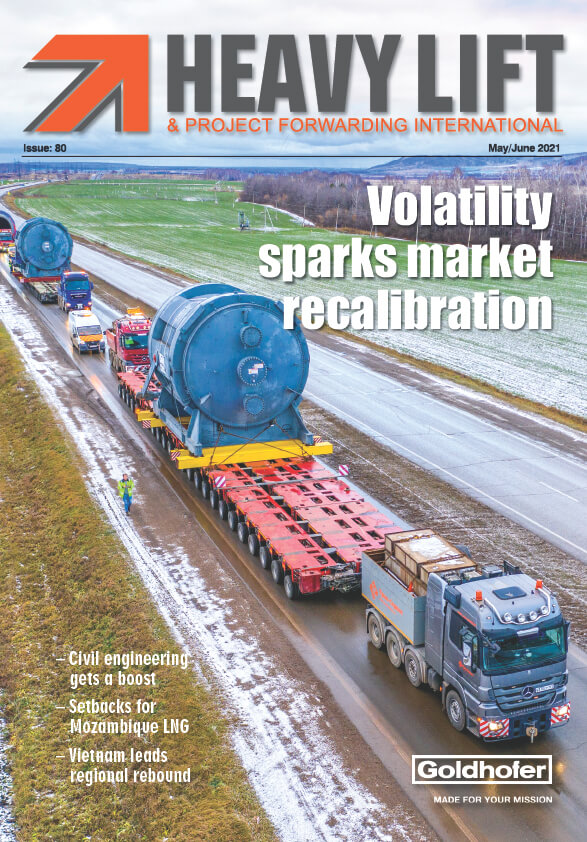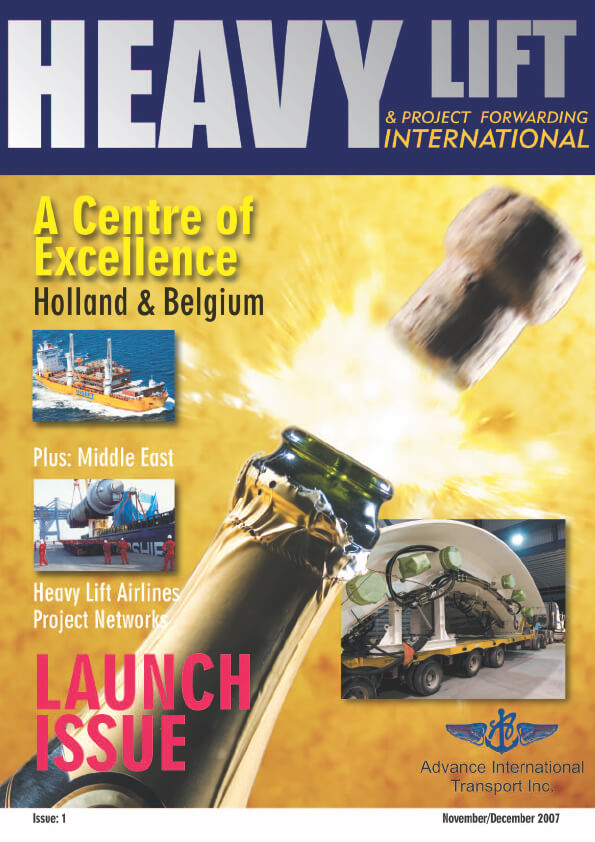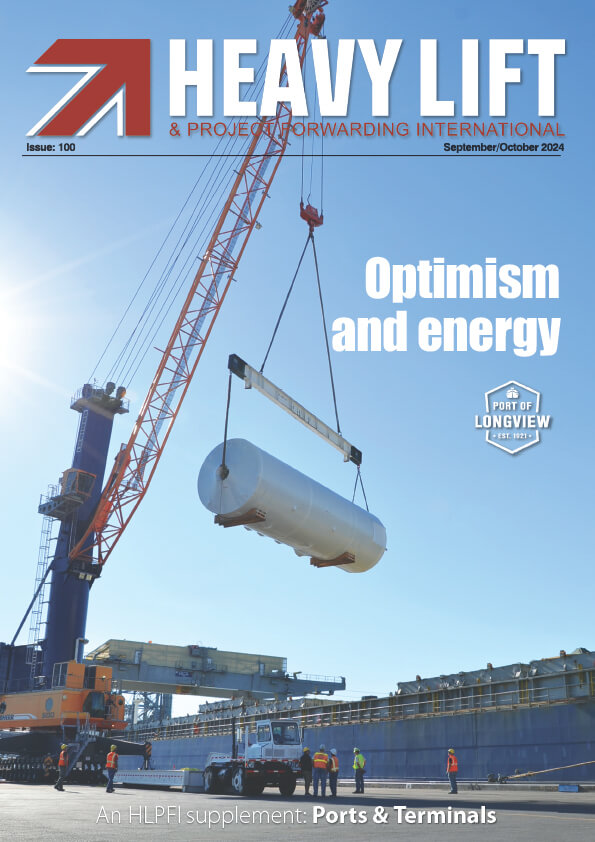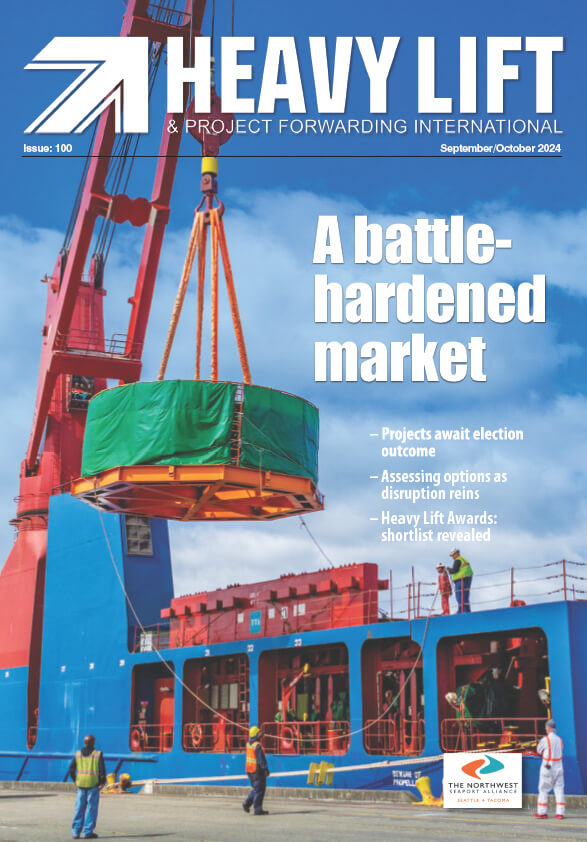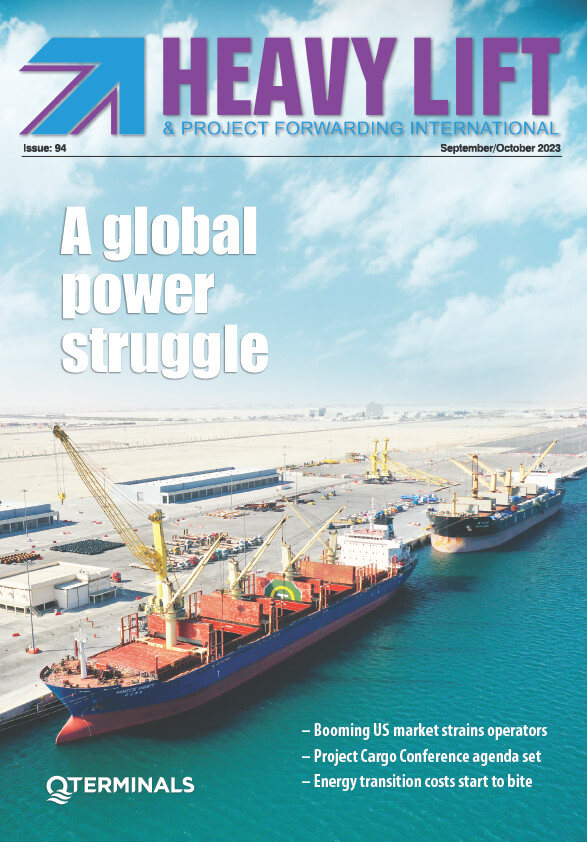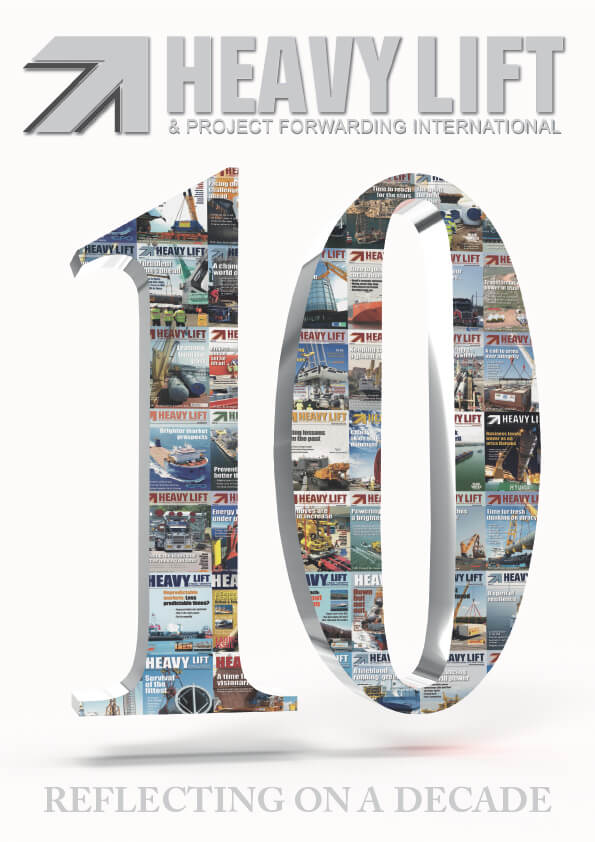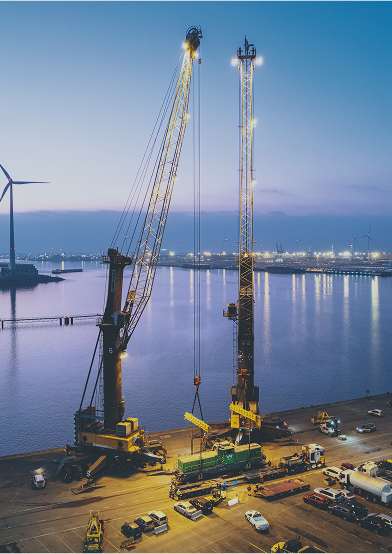Interview with David Kershaw | HLPFI Editor
In September 2024, Heavy Lift & Project Forwarding International (HLPFI) magazine published its 100th issue, coinciding with deugro’s 100th anniversary—reason enough for an interview with its editor David Kershaw.
In September 2024, Heavy Lift & Project Forwarding International (HLPFI) magazine published its 100th issue, coinciding with deugro’s 100th anniversary—reason enough for an interview with its editor David Kershaw, who joined HLPFI in 2012 and has been working in the heavy lift, project logistics, airfreight and ocean shipping markets for 16 years.
HLPFI has come a long way since its founding in 2007. Today, with a print circulation of over 22,000 copies, twice-weekly round-ups of news and insights from the heavy lift and project forwarding industry, delivered by e-mail to over 10,000 recipients every Wednesday and Friday, a comprehensive web appearance, several social media channels, and the annual Heavy Lift Awards, it belongs to the pioneers and leading publications for the logistics of over-dimensional and heavy cargo.

David Kershaw, Editor of Heavy Lift & Project Forwarding International
Hey Dave, thanks a lot for taking the time to give this interview. Can you briefly tell us how HLPFI got started and what the main challenges and milestones were along the way?
DK: No problem, thanks for the opportunity. Ian Matheson and Peter Edwards, two gentlemen with long-standing experience in the maritime publishing business, launched HLPFI in 2007.
To paraphrase, the idea for HLPFI came to Ian many years prior to its launch, fueled in part by a comment from a leading shipping line owner stating that breakbulk was ‘dead’. Ian also kept spotting incredible images of project cargo moving around the world and struggled to comprehend why so few publications were showcasing them.
For want of a better word, HLPFI was conceived almost as a ‘fanzine’— somewhere to house these awesome images and insights. Peter visited one of the early Breakbulk Europe exhibitions with a sales pitch in his head and the rest is history. He came back to the UK with an armful of bookings and told Ian, “you’ve got two months to launch a magazine”.
Of course, there have been many challenges along the way. Publishing is a competitive industry that has been in a constant state of technological flux. I think we’ve overcome challenging times by listening to our audience and delivering the information it needs—this principle has served us well, thus far.

Ian Matheson and Peter Edwards, founding shareholders of HLPFI, pictured alongside Luke King, who played a key role in the magazine’s launch.
Through your daily discussions with professionals from all project-logistics-related sectors—freight forwarders, carriers, equipment providers or project owners, EPCs and OEMs—you must have an excellent overview of industry developments. How do you keep track of all the information you receive, and how do you find the ideas for key topics and articles in HLPFI?
DK: I realise that I can’t be everywhere all of the time. So, I’m lucky to have a fantastic team of journalists who stick close to their markets. I rely on the HLPFI team, our industry relationships and rigorous editorial standards to manage the flood of information.
Since the introduction of the internet, media and media usage habits have changed a lot (such as the increase in free-of-charge content offerings, the reduction of readers’ attention spans, and the speed of news distribution). This is being continued by the increasing use of AI today. How do you see this development, and how does HLPFI deal with it in order to be able to continue to offer its readers added value (for example, using award-winning journalists, personal interviews and authentic first-hand information)?
DK:
I’m convinced that a high-quality product finds the audience. So, despite constant upheaval in the media landscape, I ask one question: What does the audience want? Ask, listen, deliver, review, repeat.
It would be wrong to say AI has no place in modern publishing—like every industry, it has its role. The question is how it’s used. AI can’t replace the value of a journalist speaking directly with a leading executive, capturing first-hand insights and bringing that personal touch. For our publication and the industry as well, AI hasn’t quite got to grips with what the project cargo sector is. The importance of industry knowledge when reporting on the sector still stands.
When looking at today’s simultaneous challenges, such as geopolitical conflicts, climate change and the energy transition, the unprecedented IT transformation including the ever-faster process automation through AI, the shortage in experts, or the shift and new development of economic and political alliances and trade agreements (such as BRICS), it appears that we are in the midst of a fundamental change with considerable uncertainties. Which challenges do you encounter most frequently in your interviews with experts?
DK: That’s a tricky one—we encounter all of the above. But are there more uncertainties today than in yesteryear, or are we all simply more aware of, and informed about, what’s happening around the world? Hard to say – but there’s no doubt that we are navigating a particularly challenging geopolitical era. Thinking more broadly, what stands out when speaking with the market is the increasing speed at which everything happens. In this environment, companies in our industry have done well to be outward-looking, well-informed and diversified.
In the past, besides the big players, most project forwarders were not necessarily known for promoting themselves or their achievements via print and social media, advertisements or awards. Still, many of them were hardly known to a wider public. A rethink has been taking place for some years now, and companies are investing more in marketing and PR departments and related activities. Where do you see the main reasons why media relations and marketing in general have become more important, and where do you still see potential for improvement to be better perceived in the market and the public, which is also critical in attracting the next generation of experts?
DK: The democratisation of information has had its benefits, for sure. We live in an age where everyone has a voice, and that voice can be amplified—accurately or not—online. Media relations and marketing are more important now than ever, in my opinion, as it allows organisations to prove that they are the real deal.
For the press to be able to do its job—inform, criticise and stimulate debate—we need to be part of the conversation. In my 14 years at HLPFI, I’m happy to say that the industry has been welcoming, and we’re thankful to be seen as a trustworthy, thorough and balanced publication. That said, we aim to continuously prove our value and maintain standards. We’ve found that if we hold up our end of the bargain, the market responds positively.
As for your question about the potential for improvement to be better perceived in the market and by the public, I fear that I’d be straying ‘out of my lane’ somewhat. Still, there’s always room for companies to build stronger narratives around their successes and engage audiences more strategically—and that takes time, thought and resources. A formulaic post on socials simply won’t cut it.
In 2019, HLPFI expanded its portfolio by launching the Heavy Lift Awards, recognizing a selection of outstanding achievements within the project cargo supply chain. The sixth annual awards took place in London in October 2024. Judging by the high attendance, the awards seem to have been very well received by the industry. How satisfied are you with the event and its development to date, and what are your next plans?
DK: Thank you, we are thrilled with how the Heavy Lift Awards has turned out. The event had been on the drawing board for many years. We decided to launch it in 2019 on the proviso that the event set an industry benchmark and the awards themselves were fair and transparent. On those counts, we consider the event a success, and we’re proud of what we’ve built – the industry support has been fantastic. Still, you’re only successful at the time you perform a successful act, and work is already well under way on the 2025 event. It really takes 11 months of effort to make sure the event resonates with the market.
Further expansion is also on the cards with our partnership with Messe München to launch project cargo zones at several transport logistic events. We don’t intend to reinvent the wheel with our involvement in these exhibitions, rather we can capitalise on pre-existing – and successful – events to bring a new platform to the project cargo sector in regions that are gaining in importance. Our core offering will always be our magazine and as such we approach all these new ventures with an editorial eye – considering the conversations we’re having with our readers, where the market is headed, what they need, and how we can best support them.
